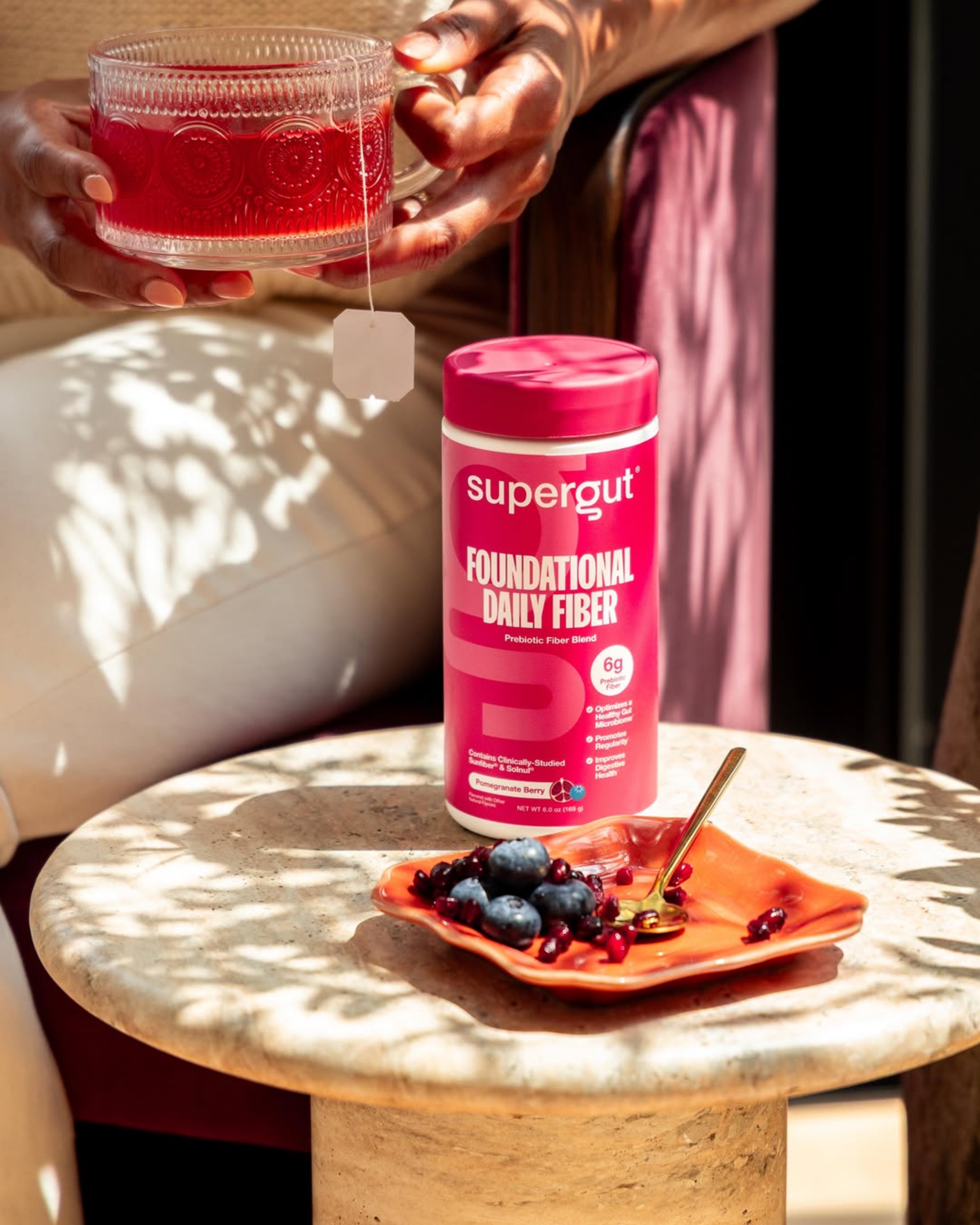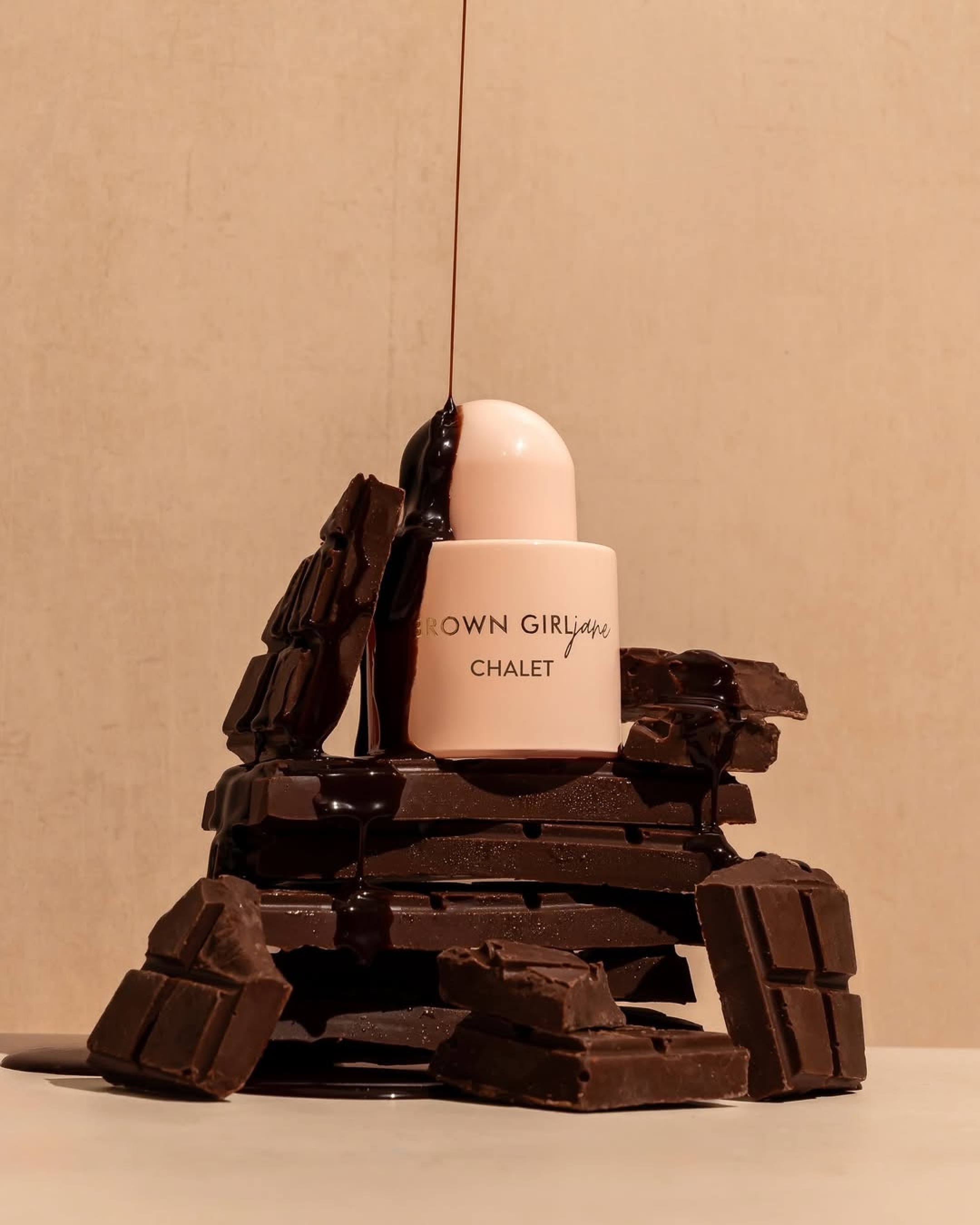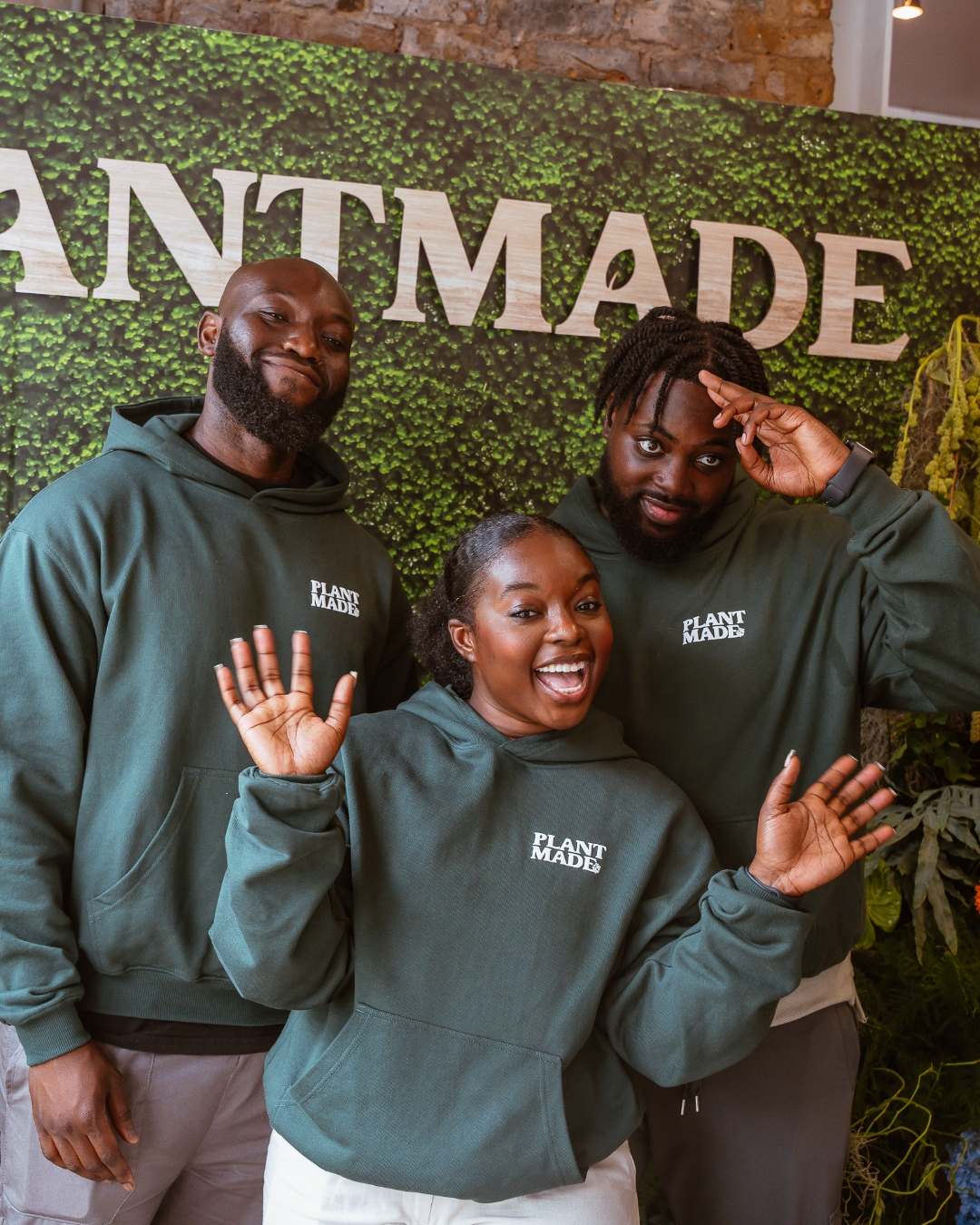Plantmade was never meant to be a start-up story. It was survival that turned into strategy. From the beginning, Ama refused the playbook most beauty founders follow: no investors, no polished launch, no influencer campaigns. Her first “funding round” was a £50 note from her brother.
Everything about Plantmade grew organically—from the kitchen to a warehouse, from a few curious followers to a global customer base. Within its first year, sales hit £1 million. By 2025, the business had passed £12 million in total revenue.
The reason was simple: people trusted it. Plantmade’s branding wasn’t built on buzzwords like “clean” or “inclusive.” It was built on proof. Customers saw real results and real people using it. Ama’s before-and-afters became community gospel.
“I was just showing up as myself,” she said. “I think people could feel that.”
Plantmade is a UK-based, Black-owned wellness brand that has rapidly grown from a kitchen experiment into a multimillion-pound haircare empire. Founded in 2020 by Ama Amo-Agyei, the brand is known for its plant-based products that tackle hair loss and promote growth in a holistic way. In just a few years, Plantmade has generated over £12.5 million in revenue, making it one of the UK’s fastest-growing beauty brands. Built on a foundation of cultural knowledge, community trust, and savvy organic marketing, Plantmade is redefining hair growth by merging ancient herbal remedies with modern brand storytelling.
Bootstrapped Growth and Organic Marketing
From the outset, Plantmade’s growth was fueled not by big investors or glossy ad campaigns, but by resourcefulness and community support. Ama started the business with only £100 (half of which her brother contributed, as he wanted a natural solution to grow his patchy beard). That tiny seed funded the first herbs and oils, and every penny earned was reinvested to meet rising demand. In fact, the company has taken zero institutional funding to date – a rarity in the beauty industry. “My first funding round was £50 from my brother… We’ve since bootstrapped this business to £11 million,” Ama noted in an interview. She didn’t even pay herself a salary for the first two-and-a-half years, pouring revenues back into scaling up production and fulfillment. This sacrifice, while difficult, laid a financially solid foundation for the brand’s expansion.
Rather than rely on traditional advertising, Plantmade leaned heavily on organic social media marketing to spread the word. Instagram was the launchpad in the early days. Ama posted educational content, hair growth tips, and her own story, which helped build a loyal following. Her background as a freelance copywriter shaped Plantmade’s distinct brand voice and storytelling approach. With a relatable tone and transparent sharing of her journey, she turned marketing into a form of community-building. Customers were invited along on the brand’s journey from kitchen experiments to scaling up, which forged a sense of trust and intimacy. User-generated before-and-after photos and testimonials further fueled interest, as people saw real results being achieved by others like them. “People were starving for this… seeing the transformations of others, they jumped on,” Ama says of the early viral growth. Plantmade cultivated a tight-knit community of customers who “ride for us heavy, and we ride for them as well,” as she describes it.
By 2021-2022, Plantmade also embraced TikTok to broaden its reach. On TikTok, Ama and her team showcased product demos, scalp-care routines, and even behind-the-scenes looks at their production process. Some videos went viral, dramatically amplifying the brand’s exposure. Plantmade smartly leveraged TikTok’s new in-app shopping features; through consistent live streams and viral product videos, the brand began generating around £30,000 per month via TikTok Shop, all with minimal advertising spend (sometimes under £500 a month). In fact, for the first three years, Plantmade barely touched paid ads, instead harnessing social media to create content, build community, and drive demand; a strategy the founder advocates for other emerging brands. This grassroots approach not only saved money but also reinforced Plantmade’s credibility; customers often discovered the brand through word-of-mouth and peer testimonials rather than slick ads.
Such organic momentum translated into impressive financial growth. As of mid-2023, Plantmade was reportedly generating £300,000 to £400,000 in sales per month. By 2025, the company reached an annual revenue run rate of about £5 million, and cumulative sales topped eight figures. Even more striking is the geographic spread of Plantmade’s fanbase: while the brand started in England, only about 60% of sales now come from the UK, with roughly 35% from the U.S. and the remainder from international customers around the world. Without a single physical storefront or major retailer distribution yet, Plantmade built a global customer base through the power of digital community. A case study in how a strong online brand presence can overcome traditional barriers to entry.
Ancestral ingredients and authentic positioning
At the heart of Plantmade’s appeal is its brand identity as a wellness-oriented, plant-powered solution for hair growth. Unlike conventional haircare products that often rely on harsh chemicals or one-size-fits-all formulas, Plantmade’s products are formulated with natural, vegan ingredients that have been used for centuries to nourish hair and scalp. The company’s ethos is to get “straight to the root causes” of hair and beard woes, rather than just masking symptoms. This mission is deeply informed by ancestral knowledge: Ama intentionally blended remedies from her West African heritage and South Asian Ayurvedic traditions – for example, rosemary and lavender oils (long valued for their hair-strengthening properties) are key ingredients in the flagship oil, alongside powerful herbs like henna, fenugreek, and brahmi. By infusing ancient wisdom with modern science-backed insight, Plantmade positions itself as “the grow & glow company,” bridging the gap between traditional remedies and contemporary beauty standards.
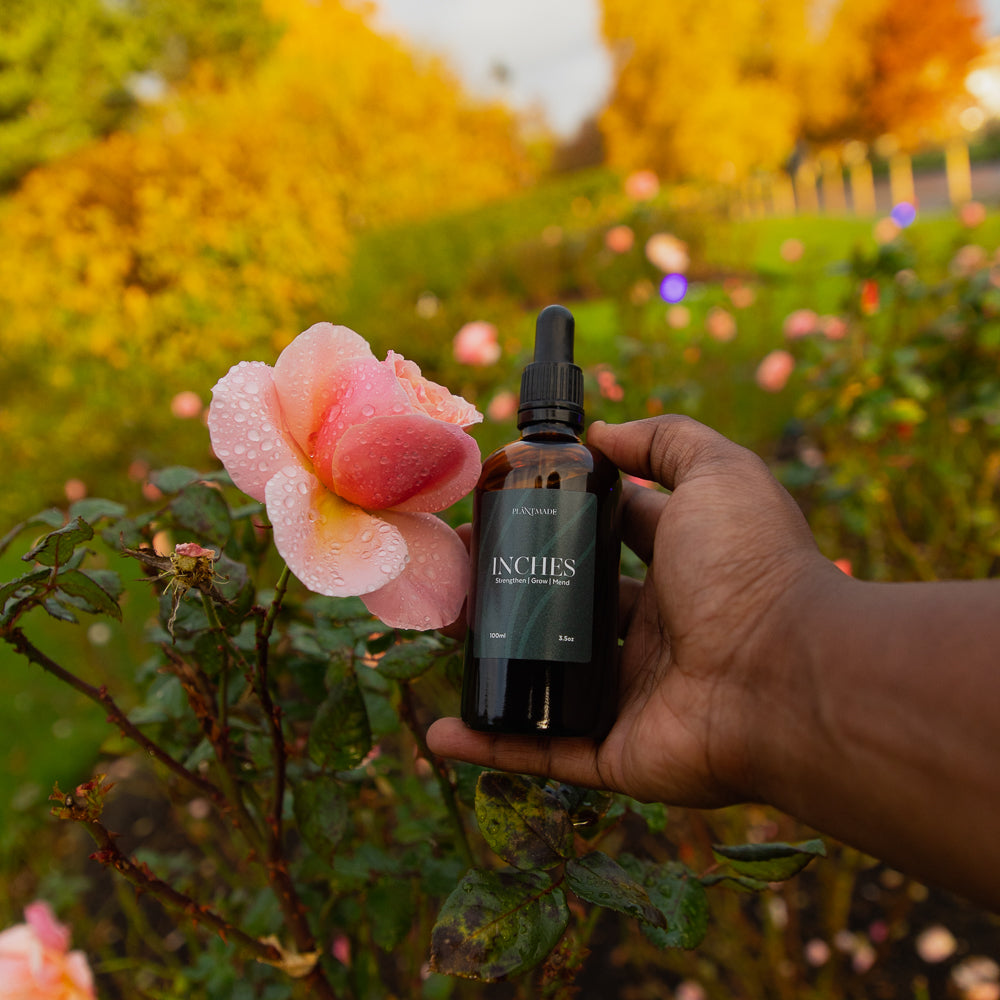
Crucially, Plantmade is redefining the approach to hair growth by treating it as part of a holistic wellness routine. The brand encourages a multi-step regimen (hydrating, sealing, moisturizing) rather than a single miracle cure, as seen in their three-step Origin Growth Kit of mist (“Drizzle”), oil (“Inches”), and soufflé (“Soil”). All products are handmade in small batches at the company’s own facility, ensuring quality control and a personal touch in every bottle. The formulations are highly concentrated and free of fillers – a deliberate choice to stand out from mainstream hair products that might be 80-90% water or packed with unnecessary additives. “We focus on quality and interesting, different ingredients,” Ama explains, noting that many mass-market shampoos and oils are so diluted that they deliver minimal benefit. Plantmade flips that script by offering potent concoctions and even a 90-day money-back guarantee if customers don’t see results – a policy that signals confidence in the efficacy of their products.
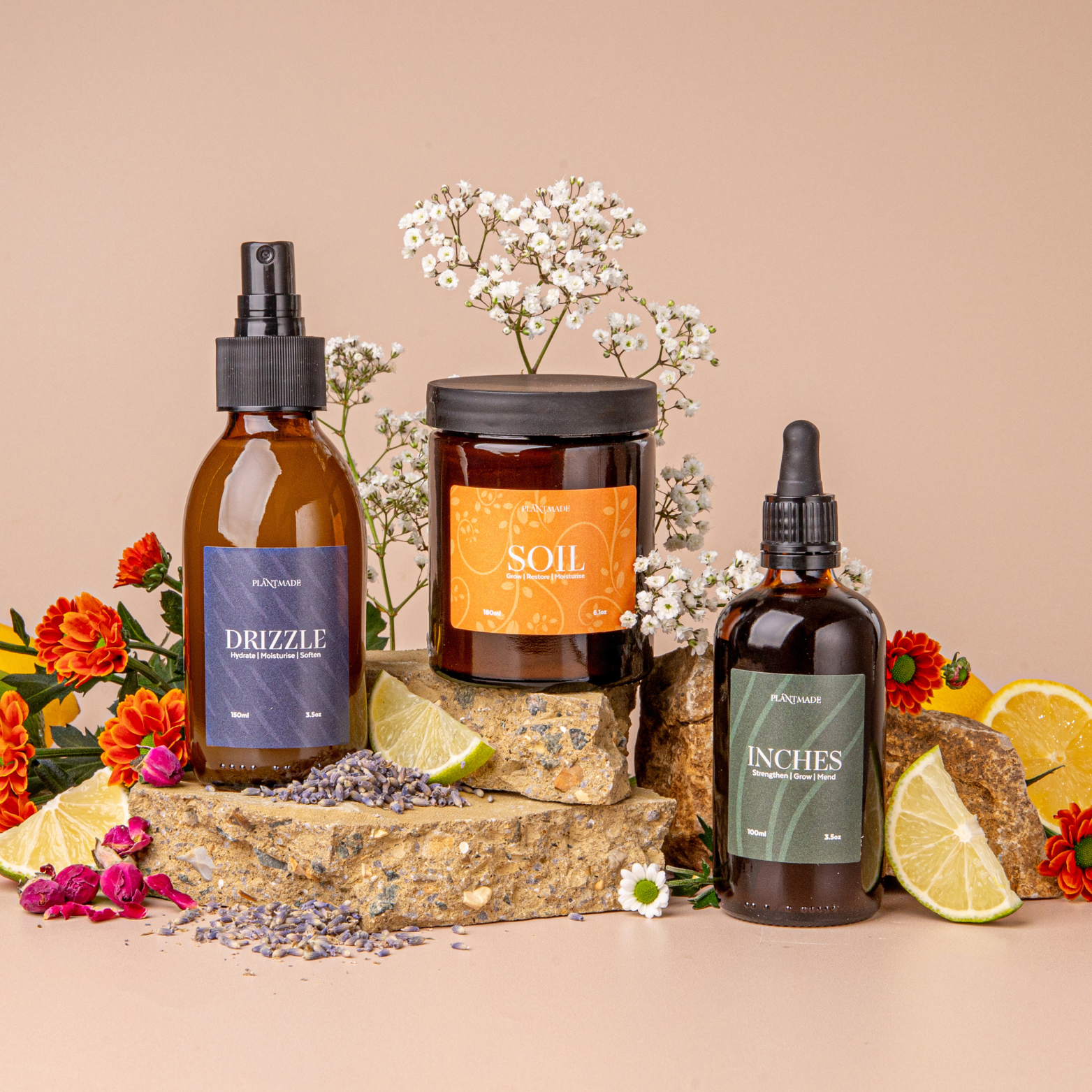
Importantly, while Plantmade originated from a Black woman’s experience and many of its early adopters were Black (drawn by finally having a solution tailored to issues like traction alopecia, thinning edges, and stress-related shedding), Ama positions the brand as inclusive and needs-based rather than exclusively race-based. “Race is not necessarily a reason to have certain products. It’s more about the hair itself – is it coarse? thick? fine? Those are the things to look at,” she insists. In other words, Plantmade’s products are formulated to work for anyone seeking healthier, stronger hair, regardless of ethnicity, as long as they have the hair concerns the products address. This philosophy has allowed Plantmade to expand well beyond the Black community and tap into a broader wellness trend. Nonetheless, the brand’s impact on the Black community is profound. By spotlighting ingredients and remedies long overlooked by mainstream brands, Plantmade filled a gap in the market for Black consumers. Ama herself noted that even popular “heritage” brands for Black hair (like SheaMoisture or Cantu) weren’t solving the real issues like scalp health and follicle damage that many women were dealing with Plantmade offered a new level of efficacy and transparency, which earned it trust among consumers who had grown skeptical after years of unmet promises. For Black women in particular – one-third of whom suffer traction alopecia in their lifetime – Plantmade’s success has been a beacon. It not only provides tangible results (thousands of customers have reported hair regrowth and renewed confidence after using the products, but it also represents a form of empowerment and representation in an industry where Black-owned brands were historically few.
Impact on the Black Community and Industry Disruption
As a Black-owned, female-led company in the wellness and beauty space, Plantmade carries a significance that goes beyond profit margins. Ama Amo-Agyei’s success story has become a source of inspiration within the Black community and among aspiring entrepreneurs of color. In an industry where Black women have historically been underrepresented in leadership – and where Black consumers’ needs have often been overlooked – Plantmade’s rise demonstrates the power of representation and culturally attuned innovation. The brand directly addresses issues prevalent in the Black community (chronic traction alopecia from tight hairstyles, or hair loss from stress and hormonal changes) with solutions that are both effective and aligned with natural hair values. By helping customers regrow edges or fill in bald spots without resorting to wigs, weaves, or invasive treatments, Plantmade has had a tangible impact on the self-esteem and wellness of its users. “I couldn’t wear my hair down, I was so embarrassed… Plantmade was my last hope and it’s working so well,” one customer testified, after seeing her once-thinning hair grow back and her confidence restored. Stories like this have made Plantmade more than just a product line – it’s viewed as a community-driven movement for hair health empowerment.

The brand’s popularity in Black wellness circles is also due to its celebration of Afro diasporic knowledge. By openly crediting African botanical remedies and rejecting the notion that Eurocentric chemicals are the only path to hair growth, Plantmade resonates with the broader natural hair movement. This movement emphasizes embracing one’s natural hair texture and treating hair with gentler, plant-based methods. Ama often educates consumers about how factors like chronic scalp inflammation or nutrient deficiencies can affect hair, and how traditional ingredients (e.g. chebe powder from Chad, coffee oil, or black seed oil) can help – topics rarely discussed by mainstream brands. Such culturally relevant education builds trust and positions Plantmade as an ally to Black consumers on their hair journeys, rather than just a company selling products.
Beyond its customer base, Plantmade’s business achievements have garnered recognition that signals a shifting landscape in beauty entrepreneurship. In 2025, Ama Amo-Agyei was named to the Sunday Times’s “Beauty Rich List,” debuting among the UK’s top beauty entrepreneurs with an estimated £10 million in personal wealth from her stake in Plantmade. Seeing a 29-year-old Ghanaian-British woman listed alongside titans like Charlotte Tilbury is a milestone moment – it highlights how far a kitchen-made, digitally native brand can go, and it underscores the growing influence of Black-owned brands in the economy. Media outlets and organizations have also highlighted Plantmade as a case study: the BBC featured Ama’s journey from unemployment to her first million in a documentary titled “The Beauty Boss,” bringing her story to a wider audience. Industry publications like Beauty Independent and Entrepreneur have analyzed Plantmade’s strategies, and Black business platforms (Shoppe Black, Wealthy Diasporian, etc.) have celebrated the brand’s role in the global Black business ecosystem. Collectively, this coverage amplifies Plantmade’s impact: it’s not only changing people’s hair, but also changing perceptions about who can lead a successful beauty brand.
Moreover, Plantmade has indirectly pressured larger companies to pay attention to consumer calls for clean, inclusive haircare. Its rise comes at a time when consumers are increasingly savvy – they scrutinize ingredients, demand transparency, and value brands that reflect their identity and values. Plantmade checks all those boxes, and its grassroots success sends a signal to the industry that the era of top-down, one-size-fits-all beauty is waning. Independent brands that genuinely engage with their communities can now outperform legacy brands that have big budgets but lack authenticity. In interviews, Ama emphasizes differentiation and authenticity as keys to breaking through: “How are you going to stand out?... With competition at an all-time high, success will go to those who look, sound, and feel completely different from the rest,” she advises fellow entrepreneurs. Plantmade’s differentiation – be it the story, the ingredients, the naming, or the direct connection with consumers – has been its moat in a saturated market. This serves as both an inspiration and a playbook for other Black-owned brands emerging across wellness, fashion, and beyond.
Looking Ahead: Expansion and Evolving Vision
Plantmade’s journey is still in its early chapters, and the brand is poised for a new phase of growth that could further cement its influence. Having mastered the direct-to-consumer online model, Ama Amo-Agyei is now strategizing ways to bring Plantmade’s products and ethos to more people through international expansion and retail partnerships. The United States – which already accounts for over a third of sales – is a prime target.
To fuel these ambitions, Ama has cautiously begun considering outside investment after years of successful bootstrapping. Any capital infusion would likely go into building a more robust production infrastructure (their current in-house manufacturing, while a strength, will need upgrading to meet global demand) and into marketing campaigns to introduce Plantmade in new regions. However, any partnership will have to align with the brand’s values; as Ama has proven, authenticity and community trust are non-negotiable, so scaling up must not dilute what made Plantmade special. If anything, potential investors are drawn because of Plantmade’s engaged following and narrative – assets that are hard to buy but incredibly valuable in today’s branding landscape.
From a brand strategy perspective, Plantmade’s story offers a compelling blueprint for building a modern consumer brand. It underscores the importance of solving a real problem based on personal insight, leveraging storytelling and social media to cultivate demand, and creating a strong brand identity that differentiates you from day one. It also highlights the potential of the often-overlooked Black consumer segment and the talent within the Black entrepreneurial community to drive innovation when given (or in this case, when taking) the opportunity. Plantmade was “built not on celebrity endorsements or venture capital, but on necessity, resilience, and innovation,” as one journalist aptly noted Those fundamentals have given it a kind of staying power that many trend-driven startups lack. Customers feel invested in the brand’s journey and mission, not just its products.
As Plantmade looks toward the future, the challenges will be to maintain the intimate customer connection and product quality at scale, and to continue leading with education and authenticity even as the company grows larger. Given Ama Amo-Agyei’s track record so far, there’s reason to be optimistic. Her vision of Plantmade becoming a global wellness powerhouse seems within reach – a future where a young woman’s remedy for her own hair loss has blossomed into a worldwide brand helping millions “grow and glow” naturally. In the ever-evolving world of brand strategy and consumer behavior, Plantmade’s case exemplifies how a contemporary brand built on community, culture, and credibility can rewrite the rules. And for the modern brand owner or marketer, it’s a potent reminder that understanding your audience’s true needs – and meeting them with authenticity – is the ultimate growth formula.

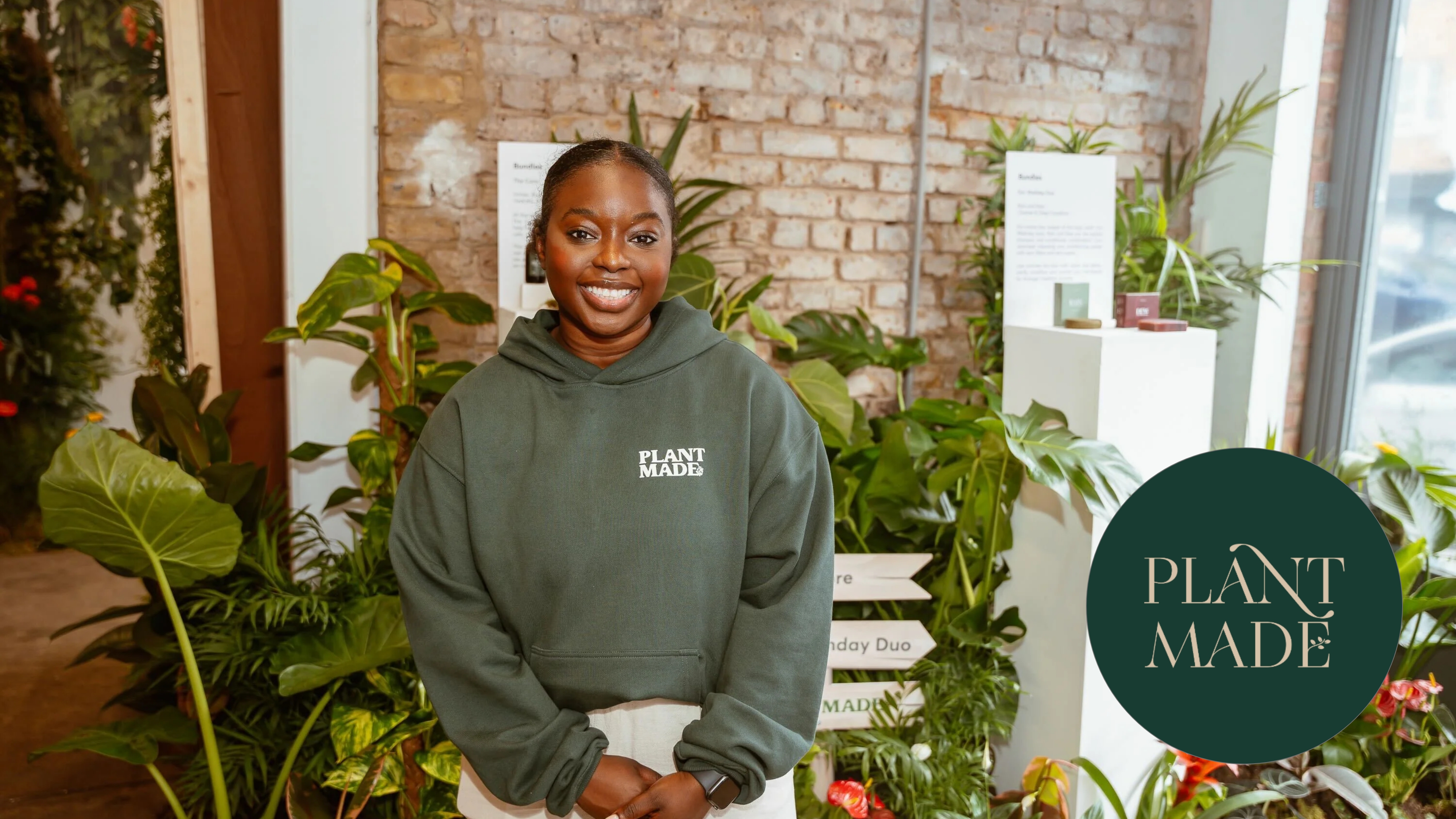




.svg)


.svg)
.svg)

